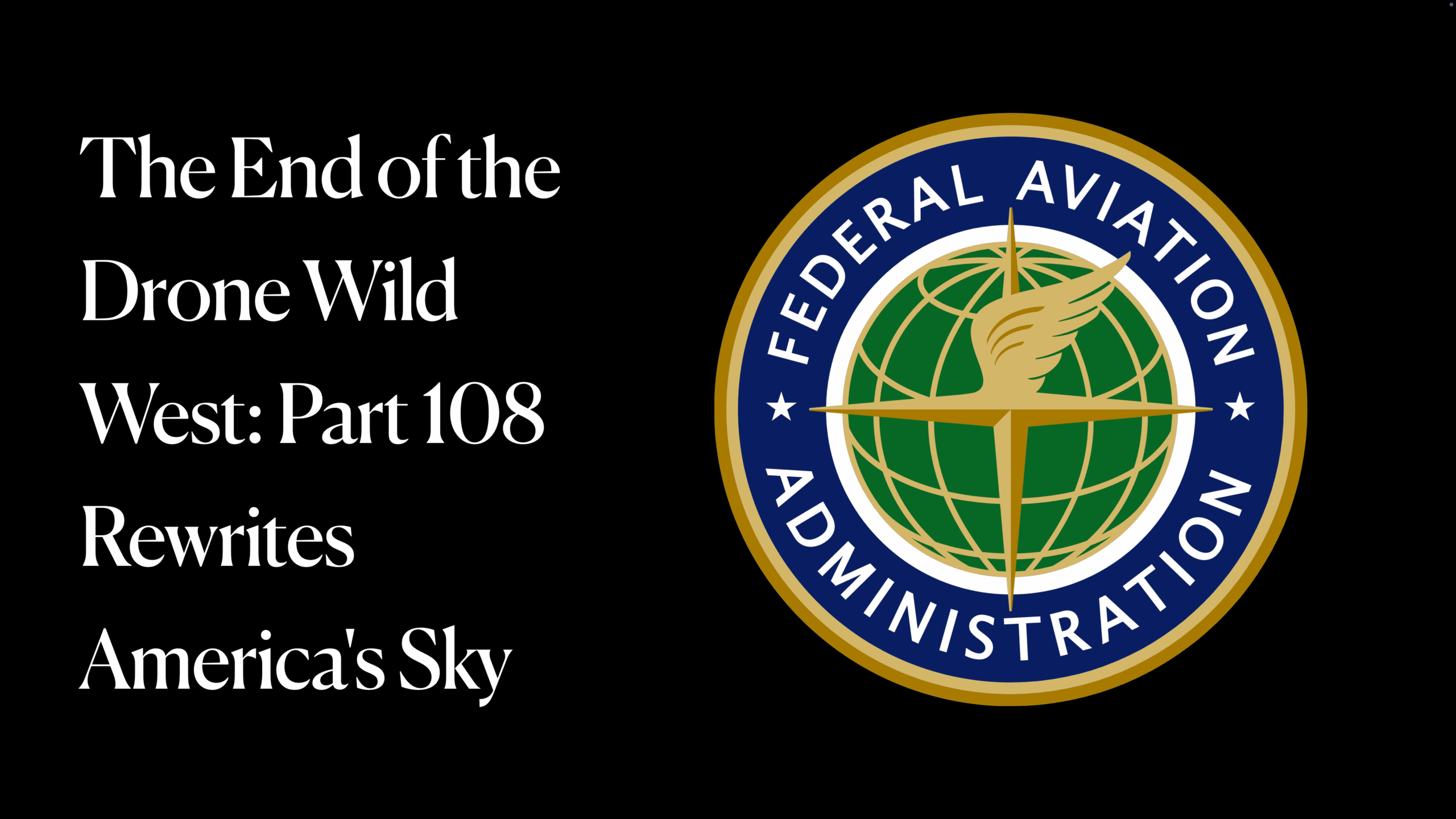The FAA just dropped 731 pages that will reshape every commercial drone operation in America. Transportation Secretary Sean Duffy didn’t mince words: “We are going to unleash American drone dominance.”
Part 108 represents a dramatic shift in US drone regulation. It’s the death certificate for the current waiver system and the birth of America’s drone superhighway.
The Big Picture
Today, getting approval for beyond-visual-line-of-sight (BVLOS) flights means navigating a bureaucratic maze. Each waiver takes months. Each flight needs special permission. It’s killing innovation.
Part 108 changes everything. Starting when this rule goes live, the waiver system dies. Every BVLOS operation moves to a standardized permit or certificate system. No exceptions.
Think of it as the difference between asking permission every time you want to drive versus getting a driver’s license once.
Two Paths Forward
Operating Permits: For drones 55 pounds or less doing routine BVLOS work. Think Amazon deliveries. You get 100 aircraft, 24-month permits, and Category 3 density limits. Permits are the training wheels option.
Operating Certificates: For everything bigger and more complex. Up to 110 pounds for urban delivery, 1,320 pounds for rural inspection. Full Safety Management Systems are required. This is the professional league.
Visual line-of-sight operations under 55 pounds? Those stay the same under Part 107. Don’t fix what isn’t broken.
The Security Angle
Transportation Secretary Duffy clarified the national security subtext: “It’s very dangerous to deploy someone else’s commercial technology into our airspace.” He’s talking about DJI without saying DJI.
But here’s what’s interesting. The 731-page rule never mentions Chinese manufacturers by name. Not once.
This regulation is about operations, not hardware bans. That fight happens elsewhere.
Every BVLOS drone gets new requirements: detect-and-avoid sensors, BVLOS status broadcasts, and TSA background checks for operators.
The message is clear: amateur hour is over.
What Got Left Out
The industry expected Extended Visual Line of Sight (EVLOS) operations—flights up to 3 miles using trained observers.
It’s not there.
This omission matters.
EVLOS was supposed to be the bridge between basic operations and complete autonomy. Without it, operators face a bigger jump to reach BVLOS capabilities.
The Economics
The FAA estimates drone operations could represent 6-7% of GDP, which would make it a trillion-dollar market. That’s a lot of growth from where the drone market is today.
Part 108 is designed to unlock that potential by creating predictable, scalable rules.
Every paid delivery flight exits Part 107 and enters the permit system.
The recreational hobbyist who wants to fly beyond sight gets a special permit too—one aircraft, 10 nautical miles, Category 3 density.
Timeline and Reality
The rule hits the Federal Register this week. There will be sixty days for comments, and then 240 days for the FAA to finalize it under Executive Order 14307.
When Part 108 goes live, existing BVLOS waivers will become worthless paper. Every operator must transition or stop flying beyond sight.
The industry has until early October to shape this rule through public comments. The window is short, but the stakes are enormous.
Bottom Line
Part 108 represents the most significant shift in drone regulation since Part 107 launched in 2016. It’s the difference between asking permission and having permission.
For established operators with resources, this is liberation. For smaller players used to the waiver system, it’s a forced evolution.
The drone Wild West is ending. What comes next will determine whether America leads the drone revolution or watches it happen from the sidelines.
Let’s make sure the 60-day comment period is useful for drone operators. After all, it’s a significant chance to influence the rules governing American skies for the next decade.
We can help each other
You can probably build your drone business on your own. You will definitely build it faster and more profitably if you work with the right partners. We can help. No cost or commitment.

Leon Shivamber
Partner
Advisor, Entrepreneur, Strategist, & Transformation Agent
